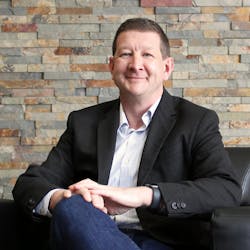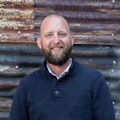Simplifying Sustainability Standards with BIFMA's Steve Kooy
In this episode of the "I Hear Design" podcast, host Robert Nieminen discusses the topic of specifying sustainable and healthy furniture, focusing on understanding various sustainability standards. He is joined by Steve Kooy, technical director for health and sustainability at BIFMA, who provides insights into the development and integration of these standards. Kooy explains the level certification program and its role in simplifying the process of identifying eco-friendly furniture, offering a clearer perspective for designers navigating the complex landscape of sustainability certifications.
For more information, scan the QR code or visit bifma.org.
Meet Our Guest
Steve Kooy, director health and sustainability, BIFMA
Steve has more than 15 years of experience as a sustainability professional in the furniture industry. He currently leads BIFMA’s Health and Sustainability programs including the e3/LEVEL sustainability certification program adopted by most commercial furniture manufacturers.
Steve also serves as chair of the board of mindful Materials, a 501c3 non-profit. mindful Materials works with industry leaders including owners, architects, manufacturers, and government, to define sustainable materials, provide a common location for sustainability data, and drive change in the built environment.
Prior to joining BIFMA, Steve worked in sales and business development for Intertek – a third-party auditor, certifier, and test lab. In this role, he worked with global furniture clients to properly test and certify products to electrical, mechanical, and sustainability standards.
Steve served as Haworth’s Global Sustainability/Open Innovation Manager for 10+ years as the built environment’s interest in green building flourished. Highlights at Haworth included: creating and driving well-being initiatives, setting sustainable design criteria for cleaner chemistry and responsible supply chains, and pursuing product certifications. WELL and LEED experience includes managing or co-managing LEED certification projects in Asia, Europe, and North America as well as piloting the WELL certification in Shanghai and Los Angeles.
He graduated from the University of Michigan with a Bachelor’s in Civil/Environmental Engineering.
About the Author
Robert Nieminen
Market Content Director
Market Content Director, Architectural Products, BUILDINGS, and interiors+sources
Robert Nieminen is the Market Content Director of three leading B2B publications serving the commercial architecture and design industries: Architectural Products, BUILDINGS, and interiors+sources. With a career rooted in editorial excellence and a passion for storytelling, Robert oversees a diverse content portfolio that spans award-winning feature articles, strategic podcast programming, and digital media initiatives aimed at empowering design professionals, facility managers, and commercial building stakeholders.
He is the host of the I Hear Design podcast and curates the Smart Buildings Technology Report, bringing thought leadership to the forefront of innovation in built environments. Robert leads editorial and creative direction for multiple industry award programs—including the Elev8 Design Awards and Product Innovation Awards—and is a recognized voice in sustainability, smart technology integration, and forward-thinking design.
Known for his sharp editorial vision and data-informed strategies, Robert focuses on audience growth, engagement, and content monetization, leveraging AI tools and SEO-driven insights to future-proof B2B publishing.



